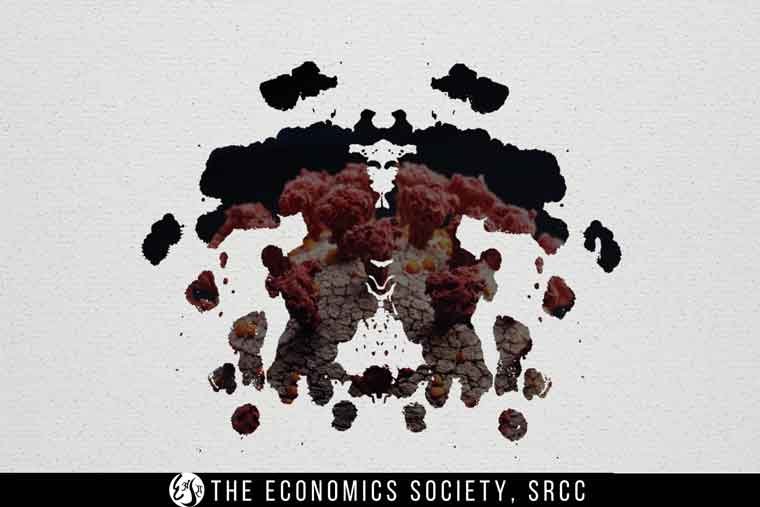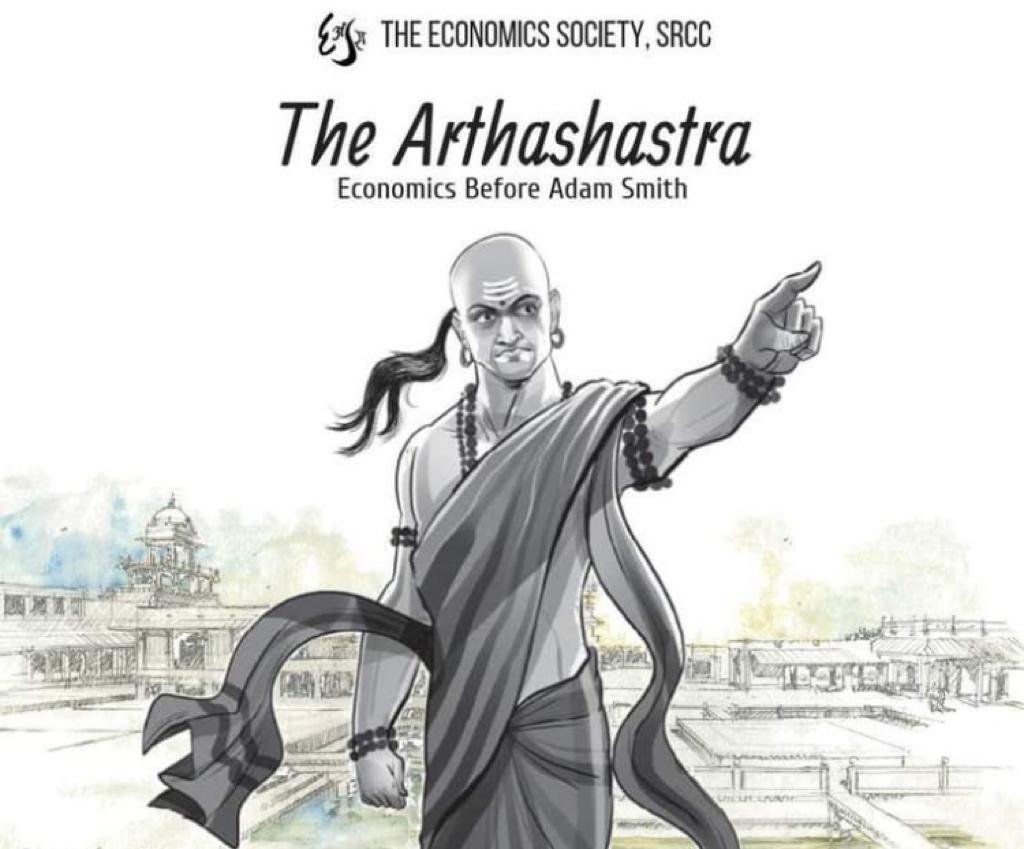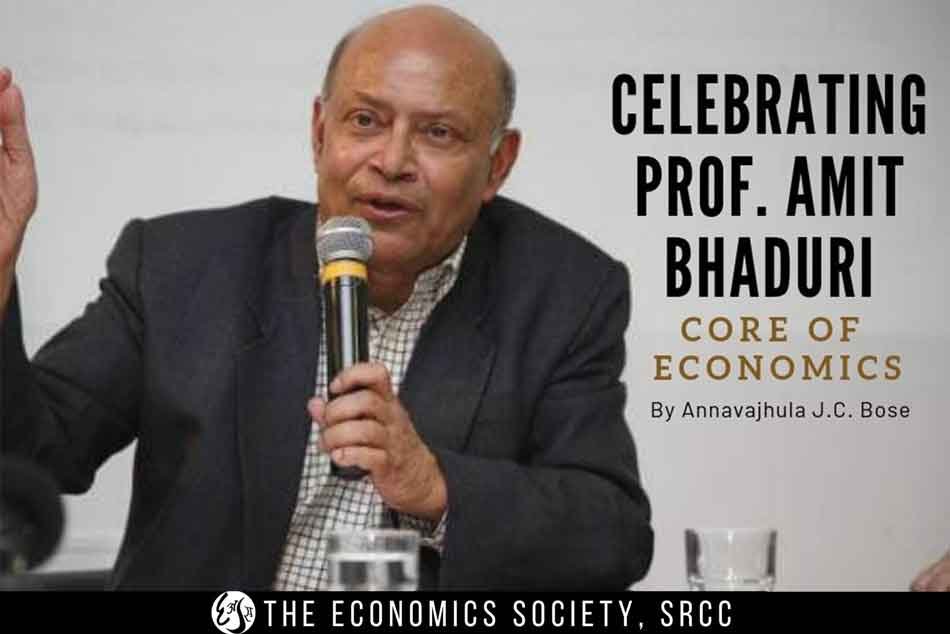
COVID-19: Government’s Rorschach Test

The pandemic has wreaked havoc, caused human suffering worldwide and has proved to be contagious both medically and economically. It is speculated that the coronavirus is not yet on its apogee and is expected to affect a more sweeping portion of the population. It has pushed the world to follow a trajectory of retrogression. Most of the governments have no experience in handling a health crisis. As they seek to put lockdowns behind them, they will have to think hard about the cost and benefits of what comes next. There are debates over lives and livelihoods, local lockdowns, testing policies and the economic reforms. How long lockdowns should last? What are the economic policies that should be undertaken? How can an efficient medical capacity be achieved in the short run? All these perplexing questions have kept the governments in a limbo of uncertainty.
So, to say the least, we can look at the pandemic as a giant Rorschach Test. A Rorschach Test uses coloured inkblots to assess people’s personality. Only that this time, the pandemic is the inkblot and the subjects of the test are the governments. The pandemic is going to reveal the nature of the governments, more importantly of the societies and their capacity to react to and withstand a crisis.
The Secret Keepers: A Case of low Cases
Consider China, for instance, one of the most secretive and autocratic regimes in the world- covered up and denied the existence of a contagious disease. It delayed the closure of its borders; the cost of which is now being borne by almost every country present in the world. China’s
secretive officials have never been candid about data. We cannot rely on the figures of coronavirus cases and deaths China is pitching and can view it as a desperate attempt to shift the geopolitical turning-point away from The US. On similar lines, we have Brazil, with a shaky command of leadership in the hands of President Jair Bolsonaro. Bolsonaro has come under blistering criticism for sabotaging the isolation measures imposed by states, encouraging mass rallies by his supporters, blatantly referring to the virus as little flu and worse off, for deciding to stop reporting the
cumulative toll altogether. It has become the second-worst affected country. Amid all this, Mr Bolsonaro is also trying to pull off a military coup. Many Brazilians have been sanguine about the threat he poses to democracy. Numerous other countries are fudging the death tolls. The US, Iran, India, Georgia, Kyrgyzstan, Russia and several others are being accused of fudging data which makes it appropriate to regard them as the “secret keepers”.
The Overweening: Halt to a Magical Run
The Italian and French government too overestimated the efficacy of their medical systems in place. Coronavirus started spreading in Europe in late 2019. Europe’s late rejoinder and its underestimation are not hidden under the proverbial bushel. They failed to spot what was coming. While we can certainly say that many countries have had a dawdled and procrastinatory response, many of them soon augmented slow but consistent momentum through the policy-based modus operandi. In sharp contrast, we have The United States which has set a tragic milestone amid a pandemic. For most of the Americans, “Corona” still meant something to be drunk with a slice of lime. Individual liberty enthusiasts failed to recognise health as both public and private good. Since the turn of the century, Europe and America have been able to shrug off most of the cataclysms coming in their way, be it- financial market crash, terrorist attacks or political populism caused partly by resentment at their prosperity and arrogance. The pandemic managed to put a halt to this western magical run.
As per The Time “The death rate from COVID-19 in the U.S. is 100 times greater than it is in China”1. It has ultimately become the worst affected country by the pandemic because of its sheer heedlessness and lack of effective early response to the pandemic. The impact could have been much better in case Washington didn’t involve itself into a political slugfest with Beijing and focused on the measures that should be undertaken. In October, Johns Hopkins University rated the United States2 the country best prepared for an epidemic, as President Trump boasted in February. Its preparedness and overestimation got exposed in almost no time.
The Covetous: Keeping Democracy in Darkness
The pandemic has unleashed an ocean of chaos and a firm mast of the ship is not only necessary but a prerequisite to sail through it with the least damage possible. Rarely, if ever, megalomaniac leaders have let go of opportunities to gain power. In this scenario as well, however inhumane this might seem, there are countries with guileful opportunistic leaders, incoherently using the current status quo to satisfy their desires Very briskly, Prime Minister of Hungary Orban passed an emergency decree that gave him exceptional powers for an indeterminate period of time and put in place draconian restrictions on political rights. Indonesia and the Philippines have taken similar steps. While these leaders are now losing support, others are succeeding to consolidate their power in a questionably democratic fashion. Israel, Poland, Sri Lanka and to some extent India are apt examples. There are numerous countries where newspapers are now banned, political activities have been put on hold and opposition leaders are being detained; all at the excuse of the pandemic. China too has a post-pandemic dream of absolute governance over Hong Kong and has taken this opportunity to pass laws to try and nullify the special status of the state. Azerbaijan, Jordan, Yemen, Oman, Iran and Morocco are all examples that come under this category. Although more than 70 countries are using emergency powers in these times, these are the states which top the list.
The Non Responsive: Third world Threat
Then we have countries that simply cannot confront such a crisis. Most of the Latin American, Middle Eastern and African countries do not have the resources and administrative stoutness to hold out against the crisis. The poorest are hit very hard because they have nothing to fall back upon. These countries are severely ill-equipped to handle a pandemic with most of them having new, underdeveloped and underinvested healthcare systems in place. WHO has warned that COVID-19 threatens vaccination programmes. If they stop in Africa, 140 children would die for each COVID death averted. At least 80 million children under one at risk of diseases such as diphtheria, measles and polio as COVID-19 disrupts routine vaccination efforts3. To make things more unfortunate, the lack of political steadiness and leadership exacerbate the conditions in these places. Nicaragua’s president disappeared for weeks early in the pandemic but allowed parties and sports to continue4. Some Central Asian countries are simply referring to themselves as coronavirus free states while the reality is the stark opposite.
Development economists have from time to time reiterated the importance of efficient healthcare systems in underdeveloped nations. They stand to be proven right, but the proof might be cruel.
The Rare Winners: Authoring the Exemplum Script
In sharp juxtaposition with all the other categories, some countries have authored fairly unerring exemplum scripts for battling the virus. These “Rare Winners” managed to curb down the mortality rates with the help of their efficient strategies. While the whole world continues to grapple with the virus these are the countries that emerged triumphantly. New Zealand’s model has been considered as one of the most effective and efficient ones all over the world. It plans to reopen 75 per cent of its economy soon and has declared itself as a “virus” free state. Australia is not much behind in terms of following the same trajectory. The key for these countries was their effective mode of communication with the masses and aggressive lockdown strategies- prioritising human cost over economic well being. South Korea, Taiwan, Germany, Vietnam, and Greece are too among those defeating the virus.
The Confused: Quest for a Win-Win Strategy
Of all the categories this one is the most harmful. Most of the countries are confused about what is happening and what is the right method to control it? What is an exit strategy? Is there one, until a vaccine is invented? Most of the countries fall under this category, surrounded by utter uncertainty and gloom, confused by the debates of lives and livelihood, pressured with the present state of the economy and worried about the death-dealing curve’s consistency in maintaining its upward steepness; unable to find a win-win strategy in the darkness of oblivion. Maybe, India has outperformed almost any country in this category. It adopted numerous confused and contradictory policies that are worsening the conditions and increasing the caseload exponentially. It has literally experienced a COVID explosion due to its jumbled decisiveness. The concept of semi-lockdowns and flawed testing policies failed to stop the virus but succeeded in halting the economy. Now after emerging from a stringent lockdown, India is facing a double dilemma. It has assumed the position of a Buridan’s Donkey; equally thirsty and hungry. India focused more on containing people rather than containing the virus; ergo, Indian streets to which 1.3 billion people are now returning to will be more virus-infected than ever. We still do not know the efficacy of the hotchpotch package introduced by the government which targeted the supply side inducements rather than focusing on the direct circulation of money in the system. But what we do know is that the virus will leave a bigger economic crisis behind, tiding over which will be very difficult for India.
Institutions: The Revelation
The question is what is the difference in the strategies of all these nations? All of them have followed lockdowns and testing policies. What is the real impetus driving the difference? The answer is the “institutions”.
Institutions are developed over prolonged periods and are the culmination of a country’s history, political spectrums, regimes, ethics, morals and cultures. This cannot be modified and transposed in the short run. The country’s which are winning the battle over the virus are the ones having a very sound and safe foundation for their prevailing institutions. They were able to pull off aggressive testing and lockdowns and efficiently forewarned the masses with people simultaneously perceiving and reacting as per the guidelines. The mode of communication and the trust of the masses in these institutions is the most vital part of the exemplum script.
Institutions are both tools and ideas. Wrapped up in an idea of an institution is the conviction of the people who are using the institutions as their tools. The stronger that conviction is, the stronger is the institution. The only good thing about the virus is presumably its function in revealing the knotholes that were very evidently present but outrightly ignored in these institutions. It has made the governments realise the importance of communication chains. COVID has, in turn, tested the efficiency of the institutions of each country and has managed, to say the least, to reveal their personalities, just like a giant Rorschach Test.
By Garvit Goswami
1st Year Undergraduate Student, SRCC
References and Citations
1. https://time.com/5850680/u-s-response-covid-19-worse-than-chinas/
2. https://www.washingtonpost.com/opinions/2020/05/08/other-countries-are-winning-against-virus-we-are-quitting/
3. https://www.who.int/news-room/detail/22-05-2020-at-least-80-million-children-under-one-at-risk-of-diseases-such-as-diphtheria-measles-and-polio-as-covid-19-disrupts-routine-vaccination-efforts-warn-gavi-who-and-unicef
4. https://www.dw.com/en/nicaraguas-ortega-watches-as-coronavirus-pandemic-rages/a-53526911
5. https://voxeu.org/content/economics-time-covid-19


